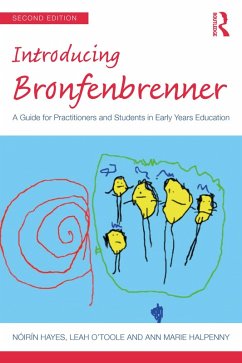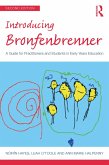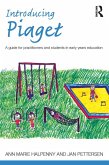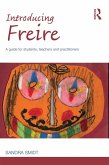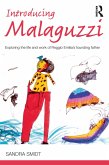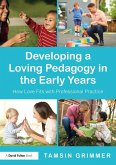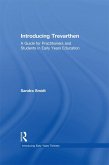This new and revised second edition identifies and explores the key elements of Bronfenbrenner's model by referring to contemporary understandings of how children learn. It also includes a new chapter which considers repositioning early childhood education settings as interactive, relational spaces and provides a broader focus on the concept of transitional experiences in children's daily lives. Along with new content on leadership and associated roles and practices in early childhood education, this book illustrates how Bronfenbrenner's model can help bring quality to early learning environments and show how it can be incorporated into daily work with young children through vignettes, case studies and examples of good practice.
Introducing Bronfenbrenner serves as an ideal read for professionals around the world working with children in early childhood settings, and students training to become early childhood professionals at degree level on undergraduate programmes, as part of vocational training or as part of continuous professional development.
Dieser Download kann aus rechtlichen Gründen nur mit Rechnungsadresse in A, B, BG, CY, CZ, D, DK, EW, E, FIN, F, GR, HR, H, IRL, I, LT, L, LR, M, NL, PL, P, R, S, SLO, SK ausgeliefert werden.
"Although Bronfenbrenner was one of our great public intellectuals, his legacy has been understood in terms of a static systems model which explains, rather than challenges, inequality and disadvantage. In this new book, this legacy is revealed instead as a complex and dynamic account of relationships and interactions. The authors explore how Bronfenbrenner developed his description of the network of influences which shape children's lives, emphasising the processes, rather than the contexts, within which development takes place. In unravelling this interplay between people and places they show how transformative processes can be set in motion by early childhood practitioners in their daily work with young children and their families." - Liz Brooker, Emeritus Reader, University College London Institute of Education, UK
"In a necessarily short endorsement it is hard to capture the wealth of thinking in this highly readable book. Far from static, Bronfenbrenner's work is presented as dynamic, evolving and rich. Powerful concepts which the authors present accessibly but accompanied by provocative and reflective questions for early years practitioners will be a call to make linkages to practice. In promoting the applications of a bio-ecological approach to early years, the authors are encouraging a form of practitioner-activism, which sees small children as active in their own learning and development in collaboration with others around them and together in the environments in which they spend their lives. A great contribution to the early years field." - Professor Aline-Wendy Dunlop, University of Strathclyde, UK

